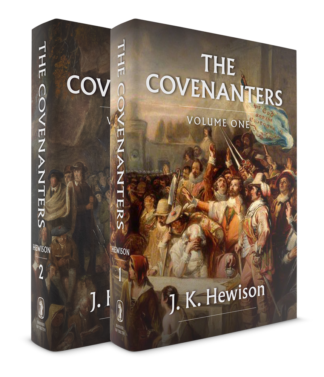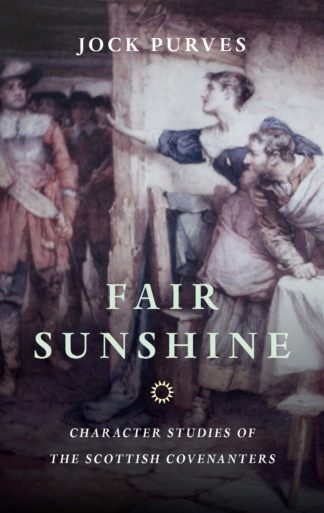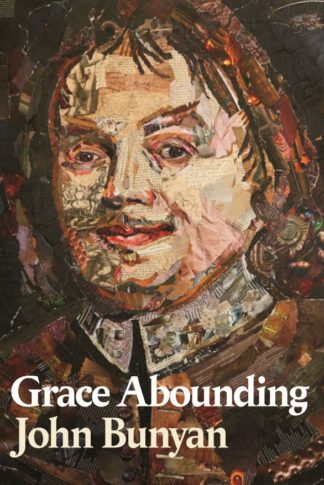All Willing To Die, But None Volunteering
The late Dr Arthur Fawcett lectured on Church History in the Bible Training Institute in Glasgow when I was a student there. His doctoral thesis was published by the Banner of Truth as The Cambuslang Revival, and a worthwhile read it is. His unusual appearance, including the shocks of pure white hair on either side of a truly bald head and the thick, round spectacles which enabled him to see only a very little, matched his equally unusual style of teaching. His lectures were frequently interspersed with what were often very humorous anecdotes and pithy comments.
These interjections were not glib irrelevancies. They were often of great spiritual value and made his classes worthwhile, even if nothing of church history was ever to have been mentioned. He lectured directly from his notes. This necessitated his raising the thick spectacles onto the top of his bald head, and then drawing his notes to within a few centimetres of his eyes; his face being hidden while that particular segment of information was divulged. When the glasses were brought back to their proper location on the bridge of his nose we would know that ‘something was coming.’ He would peer out, almost sightless, over the eagerly awaiting class and proceed to relate some relevant tale or observation.
Dealing with the traumas of the early church during the terrible times of its persecution ‘Doc’ Fawcett whimsically said on more than one occasion, ‘You know, as Christians we are all willing to die, but none of us is volunteering.’
It was some time later, in the same college, that a visiting missionary complemented the import of that statement with another. Speaking of the frequent demands of particular missions in third world situations, and the often glamourised thought of martyrdom, he pointedly said, ‘We are not fit to die for Christ unless we are willing to live for Christ.’
These two statements were brought vividly to my mind again as I was preparing to speak at a Conventicle in Ayrshire. Conventicles are open-air services after the sort to which the seventeenth century Scottish Covenanters were driven, due to their determination to maintain their beliefs and worship according to the Scriptures, rather than the imposed ideas of outside influences. Nowadays these services are organised to remember some notable person, or historical event, relating to Covenanting times. A party of over one hundred came from Northern Ireland to meet at Muirkirk. It is 315 years since John Brown of Priesthill was shot in front of his wife and infant children, outside his own home. Even among the enormous injustices of that period John Brown’s death stands out as particularly scurrilous and reprehensible.
He had been married for only three years, during which time his home was open, particularly to the young men of the locality, to come together and study the Word of God and the Confession of Faith. A friend of the family, and at times a visitor to the home, was Sandy Peden, the prophet of the Covenant. Peden had mysteriously foretold of Brown’s death on the day that he married John to his wife Isabel. On their wedding day he advised her to have a ‘winding-sheet’ ready for her husband’s soon and brutal death. Early in the month of May Claverhouse and his troops found John Brown digging peat near his cottage home. He was brought to his front door and, as his wife stood watching, they shot him in the head. His wife was left completely on her own to gather the remains and prepare her beloved husband for burial. (cp. Fair Sunshine, Jock Purves, Banner of Truth, pb., ‘John Brown’, pp. 65-76).
‘We are willing to die, but none of us is volunteering.’ In a sense that was not true of John Brown. Like every other young man he wanted and planned to live, but the day he ventured by faith on Christ as his Lord and Saviour did he not sign his own death warrant? Certainly the day he signed the Covenant it was tantamount to signing his death warrant, as it was for thousands across the nation.
We live in different times. Thankfully. Living as we do, between times of major potential martyrdom, our faith in Jesus Christ does not relegate us to some list of targets to be hounded and eradicated. Whilst willing to die we are glad that there is no immediate cause to require us to volunteer. And yet, in the transformation of grace, our death warrant is not only signed but also already executed. To trust is to die. With the apostle we too are crucified with Christ and no longer live. Dietrich Bonhoeffer was right when he said, ‘When Jesus calls a man, he bids him come and die.’ When Christ claims us as his, he claims us lock, stock and barrel–everything.
Throughout Europe today it is indifference that threatens to extinguish the cause of Christ, not martyrdom. The lethargy that exists in meaningfully spiritual things–not least of all the cause of mission–continues to swamp and paralyse the Master’s cause. Some have even suggested that a good dose of persecution is what we need to separate the genuine from the pretenders. But surely it should be our perpetual task to inquire how real our commitment to Christ is. It is so easy to say, ‘I would die for him’, when there is no threat of death. Our problem is that in many cases we are not fit to die for our Lord, because we are not willing to live for Him. May God help us all afresh to volunteer to live, by taking up our cross daily, following Jesus.
Vision of Europe, July-September 2000. EMF, 6 Codicote Road, Welwyn, AL6 9NB With permission
Of Further Interest

The Covenanters
A History of the Church in Scotland from 1540-1690
Description
The late Dr Arthur Fawcett lectured on Church History in the Bible Training Institute in Glasgow when I was a student there. His doctoral thesis was published by the Banner of Truth as The Cambuslang Revival, and a worthwhile read it is. His unusual appearance, including the shocks of pure white hair on either side […]

Fair Sunshine
Character Studies of the Scottish Covenanters
Description
The late Dr Arthur Fawcett lectured on Church History in the Bible Training Institute in Glasgow when I was a student there. His doctoral thesis was published by the Banner of Truth as The Cambuslang Revival, and a worthwhile read it is. His unusual appearance, including the shocks of pure white hair on either side […]

Description
The late Dr Arthur Fawcett lectured on Church History in the Bible Training Institute in Glasgow when I was a student there. His doctoral thesis was published by the Banner of Truth as The Cambuslang Revival, and a worthwhile read it is. His unusual appearance, including the shocks of pure white hair on either side […]
Latest Articles
Corporate Worship: 10 Benefits for Our Children 9 August 2024
Having your children with you in worship can be hard. It can be hard for the parents, for the children, and for the rest of the congregation. The squirming, the shuffling of papers, the loud whispers, and the louder cries, all can make it challenging to have our children with us in corporate worship. But […]
A Call to Preserve Evening Worship Services 26 July 2024
The following was published as ‘Preserve Evening Worship Services!’ in the October 2007 edition of the Banner of Truth Magazine (Issue 529). It was written by Michael G. Brown, who at the time was pastor of Christ United Reformed Church, Santee, CA. He currently pastors Chiesa Riformata Filadelfia in Milan, Italy. ‘Why do you go […]
